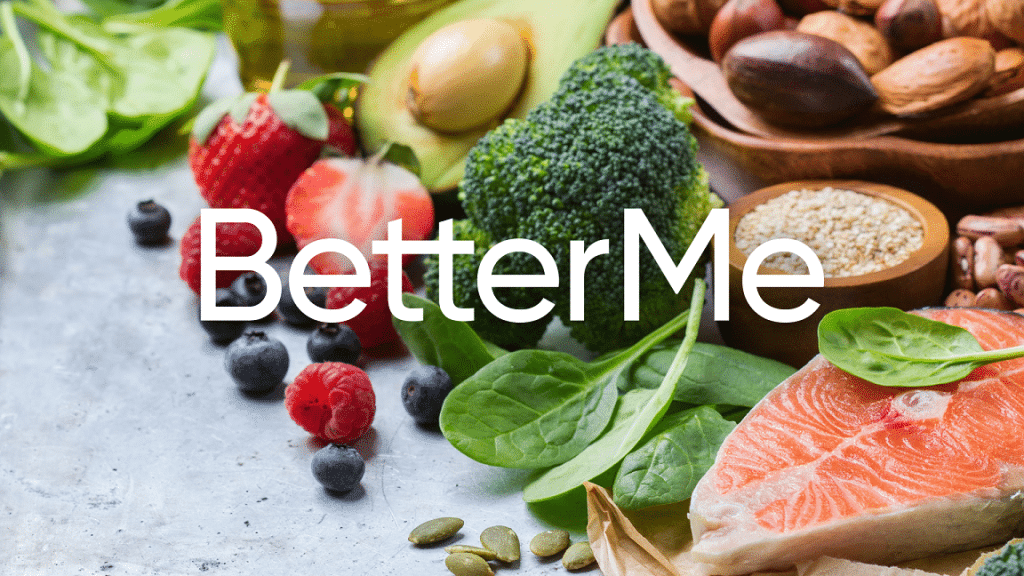Green peppers are a highly nutritious vegetable that is part of the nightshade family. They provide the body with a number of essential nutrients, including antioxidants and fiber. Green peppers also contain vitamin C, folate, niacin, riboflavin, and thiamine. In this article, you will learn about six green pepper health benefits.
Green Pepper Health Benefits
Below are reasons why you should use this tasty and nutritious vegetable:
Rich Source Of Nutrients
Green peppers are very nutritious, providing the body with a number of essential nutrients, including antioxidants and fiber. These include manganese, vitamin C, folate, niacin, riboflavin, thiamine, potassium, phosphorus pectin choline and beta-carotene (13).
These vegetables are also high in bioactive phytonutrients (2).
Green peppers are a good source of vitamin C, with one small green pepper containing almost 100% of the RDA of this essential nutrient. In addition to being an antioxidant that helps fight free radicals, eating foods high in vitamin C may help boost immunity and improve heart health by helping to keep arteries clear and reducing blood pressure (18).
Green peppers are also a good source of folate which helps reduce levels of homocysteine in the bloodstream (and is especially important for pregnant women to prevent birth defects) (8). High levels of homocysteine have been linked to heart disease and Alzheimer’s (16). In addition, green peppers are a good source of niacin which helps metabolize food into energy and supports normal functioning of the nervous system (11).
Niacin has also been shown to help reduce bad cholesterol (LDL) while increasing good cholesterol (HDL) (11). Green peppers also contain a fair amount of riboflavin, potassium, phosphorus, pectin, choline and beta-carotene.
Read More: Are Sweet Peppers Good For You? Nutrition And Health Benefits Of These Colorful Vegetables
Good For Gut Health
Green peppers are great for gut health as they provide dietary fiber that feeds beneficial bacteria in the digestive tract. These healthy bacteria produce enzymes that break down foods for optimal nutrient absorption (5). In addition to helping with weight management by balancing blood sugar and decreasing cravings, fiber can also help manage constipation and normalize bowel movements (9).
Promotes Heart Health
Green peppers contain a variety of nutrients that promote heart health. For example, they provide potassium, an important nutrient when it comes to cardiovascular health as adequate potassium reduces the risk of stroke and coronary artery disease (14).
In addition, green peppers are a good source of folate which helps reduce levels of homocysteine in the bloodstream. High levels of homocysteine have been linked to heart disease and Alzheimer’s (16). Green pepper benefits don’t stop there: this vegetable is also a good source of magnesium and vitamin B6 both shown to support a healthy cardiovascular system (6)(7).
Promotes Eye Health
Green peppers are a good source of vitamin A which is required for vision and night vision. Vitamin A is important for the optic nerve, retina, cornea, eye muscles, and cells that produce fluid for the eyeball (17).
Promotes Weight Management
Appetite control and weight management are other green pepper benefits. This vegetable contains a high amount of pectin, a soluble dietary fiber, which may help with satiety or fullness after eating as well as promote healthy blood sugar levels (12). In addition to helping with weight management by balancing blood sugar and decreasing cravings, fiber can also help manage constipation and normalize bowel movements (9). Plus, green peppers are extremely low in calories (only 20 calories per 100g).
Rich Source Of Antioxidants
It has been found that green pepper contains a high level of flavonoids such as luteolin. This antioxidant is known for its anti-inflammatory properties and to have protective effects on the nervous system (1). In addition, luteolin is believed to be beneficial in preventing memory loss as well as slowing down brain aging.
The high concentration of this antioxidant in green peppers may help fight certain types of cancers such as breast cancer and prostate cancer (10). Green pepper also contains lutein, a compound that promotes eye health because it helps prevent age-related macular degeneration (AMD) which is a leading cause of blindness in older adults (4).
The main health benefit of green peppers is its ability to prevent disease and improve overall well-being. They are high in phytochemicals, which is an organic compound that provides both nutritional and medical benefits.
Green peppers also have anti-inflammatory properties, helping with weight management and cardiovascular health. Its fiber can help manage cholesterol levels by lowering LDL (low-density lipoprotein) and triglyceride levels while simultaneously increasing the body’s HDL (high-density lipoprotein).
Looking for a way to break the vicious cycle of weight loss and tone up all the jiggly parts? Watch the extra pounds fly off and your muscles firm up with the BetterMe app!
Different Ways To Eat This Vegetable
So, are green peppers good for you? It depends on how you eat them. If you want to reap the benefits of this vegetable, follow these six tips:
-
Eat Them Raw
Raw green peppers contain some of the highest levels of nutrients compared to cooked or processed green peppers. They will also help promote healthy gut flora which is important for maintaining good health.
-
Add Them To Salads For Extra Flavor And Nutrients
Green peppers are an excellent source of vitamin C and A, making them a great addition to salads during the winter months when there aren’t many other vegetables in season. They provide extra flavor as well as lend their nutrients to your salad.
-
Eat Them With Meat
Meats like ham and bacon are usually prepared with sugar or honey, both items that can spike insulin levels and cause inflammation. Instead, try pairing these foods with green peppers to cut down on sugar intake without sacrificing taste.
-
Grill Them
Grilling green peppers concentrate their flavor, making them taste sweeter even though they are low in sugar. They also lose some of the bitterness that green peppers are known for.
-
Add Them To Soups And Stews
Green peppers enhance the flavors of soups and stews without adding too much substance to your meal. Plus, you will still be receiving many of the benefits this vegetable has to offer because cooking it enhances its nutrients instead of diminishing them like other heating methods would do.
-
Make A Green Pepper Dip
Green peppers are a great substitute for celery in most dips, helping cut back on sodium intake. Remember, overconsumption of sodium increases your risk of high blood pressure (15). Try using them in hummus or even ranch dressing to enjoy the taste without all of the salt.
Read More: Are Stuffed Peppers Healthy? Nutrition Facts Plus 20+ Recipe Ideas!
-
Add Them To Your Omelet
Omelets are a favorite breakfast food, but they can become very boring. Instead of having the same old vegetable omelet day after day, mix it up by adding green peppers to your egg mixture.
-
Add Them To Your Quinoa Bowl
Quinoa is a complete grain that serves as a great source of protein for vegetarians and vegans alike. It also provides many nutrients such as manganese, phosphorus, magnesium, folate and dietary fiber. However, quinoa is lacking in vitamin C and A so try pairing it with some diced green peppers to improve its nutritional profile.
-
Use Them In Sautéed Veggie Dishes
Green peppers work well with other veggies like carrots, onions and mushrooms. Sautéing them all together creates a delicious meal that is full of nutrients and flavor.
The Bottom Line
Green peppers are full of antioxidants and nutrients, making them a healthy addition to your diet. They can help prevent chronic illnesses and promote overall well-being. Try eating green peppers raw, grilled or as part of a sautéed veggie dish for the best results.
Get your personalized
meal plan!
DISCLAIMER:
This article is intended for general informational purposes only and does not address individual circumstances. It is not a substitute for professional advice or help and should not be relied on to make decisions of any kind. Any action you take upon the information presented in this article is strictly at your own risk and responsibility!
SOURCES:
- Anti-inflammatory effects of luteolin: A review of in vitro, in vivo, and in silico studies (2018, sciencedirect.com)
- Capsaicinoids, Polyphenols and Antioxidant Activities of Capsicum annuum: Comparative Study of the Effect of Ripening Stage and Cooking Methods (2019, mdpi.com)
- Capsaicinoids: a spicy solution to the management of obesity? | International Journal of Obesity (2015, nature.com)
- Carotenoids of Capsicum Fruits: Pigment Profile and Health-Promoting Functional Attributes (2019, mdpi,com)
- Dietary fiber and prebiotics and the gastrointestinal microbiota (2017, ncbi.nlm.nih.gov)
- Dietary Magnesium and Cardiovascular Disease: A Review with Emphasis in Epidemiological Studies (2018, mdpi.com)
- Dietary Vitamin B6 Intake Associated with a Decreased Risk of Cardiovascular Disease: A Prospective Cohort Study (2019, mdpi.com)
- Folate – Health Professional Fact Sheet (2021, ods.od.nih.gov)
- Health benefits of dietary fiber | Nutrition Reviews | Oxford Academic (2009, academic.oup.com)
- Luteolin, a flavonoid with potentials for cancer prevention and therapy (2009, ncbi.nlm.nih.gov)
- Niacin – StatPearls (2021, ncbi.nlm.nih.gov)
- Pectin delays gastric emptying and increases satiety in obese subjects (1988, pubmed.ncbi.nlm.nih.gov)
- Pepper, sweet, green, raw (2020, fdc.nal.usda.gov)
- Potassium and Health | Advances in Nutrition | Oxford Academic (2013, academic.oup.com)
- Sodium Intake and Hypertension (2019, mdpi.com)
- The metabolism and significance of homocysteine in nutrition and health – Nutrition & Metabolism (2017, nutritionandmetabolism.biomedcentral.com)
- Vitamin A – Health Professional Fact Sheet (2021, ods.od.nih.gov)
- Vitamin C – Health Professional Fact Sheet (2021, ods.od.nih.gov)











